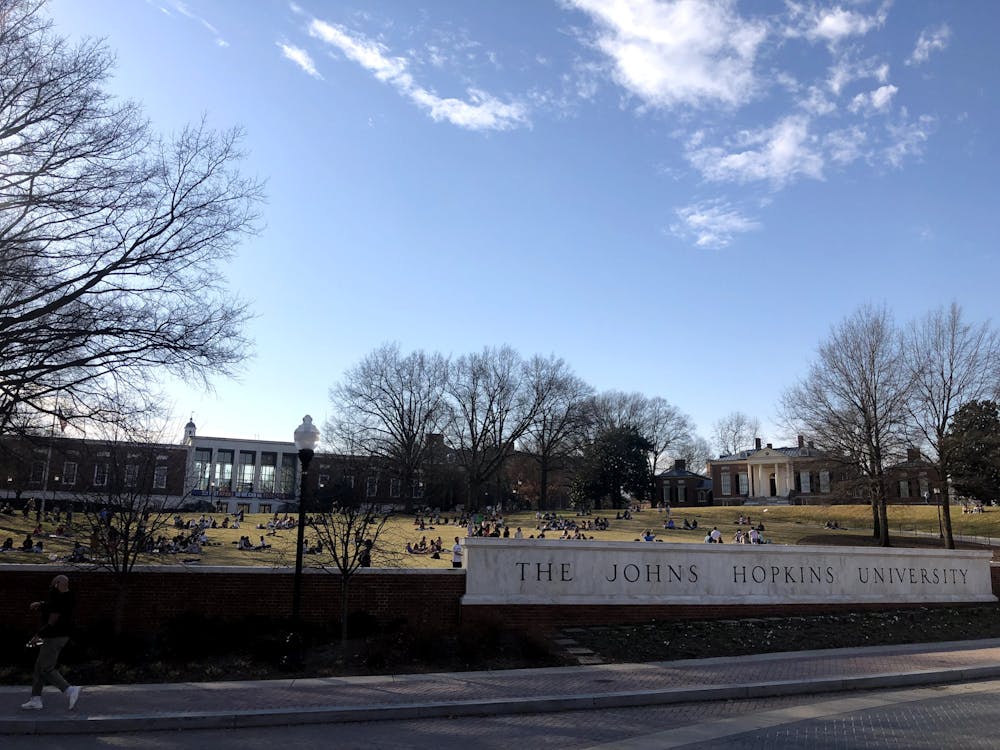The Committee on Student Elections (CSE) hosted the debate for the Student Government Association (SGA) Executive Board elections on Thursday. The four candidates on the SMART ticket and one independent candidate, Karen He, answered questions submitted by students and attendees. According to CSE Chair Ananta Srivastava, around 17 students not part of SGA attended the debate.
Junior Mehak Ali, who is the uncontested candidate for executive president, heads the SMART ticket, alongside sophomore Breanna Soldatelli for executive vice president, freshman Elaina Regier for executive secretary and freshman Harvey McGuinness for executive treasurer. Ali currently serves as executive vice president and Soldatelli is the incumbent executive secretary. Both Regier and McGuinness are freshman class senators.
Sophomore Karen He, a sophomore class senator, is running for executive treasurer. She currently chairs the Finance Committee.
The candidates discussed how to improve the experience of minority students on campus, specifically Black and Asian students. Ali hopes to standardize implicit bias trainings for professors and teaching assistants to help them be more aware of how they treat students of color.
“It’s been a long-standing issue that students have brought up,” she said.
McGuinness suggested that implicit bias training be extended to students.
“Implicit bias goes beyond professors and staff. That is something we can mandate similar to how we have bystander intervention training,” he said. “One thing that really goes unnoticed in terms of reporting are slights that other students might not pick up on or professors might not even be cognizant of.”
Soldatelli emphasized the need for more diverse faculty at Hopkins.
“A lot of the time, you have professors teaching about minority experiences who don’t understand a lot of what Black or other minority students might be facing,” she said.
Candidates noted that a crucial way to improve the minority experience is by utilizing SGA caucuses. SGA currently has a Hispanic and Latinx caucus, a Black caucus and a women and gender minorities caucus. He shared that she is working to form the Asian caucus.
Regier noted that after SGA presents its work to the administrators, it is often unclear what action the University then takes. She called on more transparency from the administration, specifically from committees that work on diversity like the Committee to Establish Principles on Naming.
“If we don’t know what’s going on in their meetings and what they’re talking about, then we can’t really give any feedback throughout the process,” she said. “Once we know what’s going on, we can really have a voice in the room.”
The candidates also discussed ways to connect students with the administration.
Regier noted that SGA is uniquely able to capture the needs of the entire student body.
“Since we span over multiple classes, we can definitely help work on inter-class events to try to connect freshmen, sophomores, juniors, seniors and not have it as isolated as the class council meetings,” she said.
Ali stated that she will work to make sure students have seats in planning committees. She believes doing so will help increase turnout at University-hosted events.
“Fighting for a spot in these planning committees will really help create a space for students to express what they want to do on those days and plan events that will help them get connected,” she said.
Soldatelli argued that members of SGA have the ability to represent the student body to administrators.
“I do believe that [the administration] thinks everything we do is for the good of the student body. They also want to help the student body; they just might have some conflicting interests, while we have one goal in mind: represent the student body,” she said. “Us giving them input and them understanding that we speak for the students is a good way to maintain that continued relationship and not have contentions.”
The candidates also pledged to continue to work on issues of personal interest.
During his time in SGA, McGuinness has worked on improving accommodations, access and transparency for students with disabilities.
“When you see a person, you don’t get the whole story,” he said. “If you have a casual conversation, you might not have any clue what their underlying struggles are. I hope that I can champion disabled students in a really critical way as someone that understands it.”
As treasurer, He would be interested in organizing events for students to connect with each other and explore the Baltimore community. She believes off-campus events could be designed to help to support the surrounding marginalized Black community.
“The school should have days where the students go out in the community and volunteer or interact with the community members,” she said. “We could do that through already existing clubs.”
Ananta Srivastava, the chair of CSE, is a staff writer for The News-Letter. She did not contribute reporting, writing or editing to this article.





